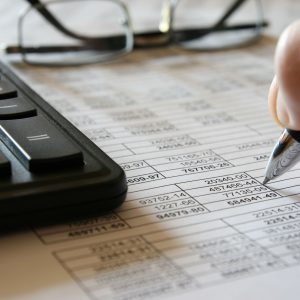Should you pay your upcoming Self Assessment tax bill?
The second self assessment payment on account for the tax year 2019/20 is due on 31 July. However, as part of the Government’s support package for businesses impacted by COVID-19, this can be deferred until January 31, 2021. For those choosing to defer, no penalties or interest will be levied, and no application is required as deferral is automatic.
Whilst on the surface it may appear beneficial for everyone to defer this payment, careful consideration should be given as it may be useful to pay part, if not all the payment before the extended deadline.
Delaying payment to 31 January 2021:
Short term relief
Providing more time to pay will be a welcome relief for those whose finances have been impacted by COVID-19, especially those working in sectors that have suffered significantly during lockdown.
This will offer short-term relief, and help reduce the financial impact, allowing cash to be utilised for other urgent expenses and payments.
Time to pay
For those self-employed workers and businesses suffering from financial distress, who already owe outstanding tax, a ‘Time to Pay’ arrangement may be able to be arranged with HMRC. When agreed, this allows a pre-agreed, time-limited deferral period to pay the owed tax to HMRC. There is generally a requirement to keep up to date with all payments and pay all future tax on time too.
HMRC has also set up a dedicated coronavirus (COVID-19) helpline offering assistance to those that cannot pay other tax bills due to the impact of COVID-19.
Longer-term implications
Whilst deferring your tax bill may seem an obvious choice, it could have negative impacts in the future, which ultimately could be more significant to a business or self-employed worker.
Should deferral be the chosen option, this payment will be due on 31 January 2021, the same time as any balancing payment for the 2019/20 tax year is due alongside the first payment on account for the 2020/21 tax year. Effectively, this could be the equivalent of a whole years’ tax, paid in one instalment. This could leave you with a significantly larger bill to pay, or risk penalties and fines from HMRC.
This could lead to cash flow challenges in early 2021, at a time when many may still need to be investing in building their businesses back up.
Alternatives to consider
If you can afford to, obviously you can still pay your tax bill by the usual 31 July date. It is likely that many, however, may have suffered some form of financial hardship, and this may not be possible. In these circumstances, you may wish to make a part payment on account now and/or spread payments over the remaining months of the year. this would help to retain some additional working capital and lessen the burden on 31 January 2021.
Weighing up your options
Whilst no one can accurately predict how the next six months will perform given the current economic climate, having up to date cashflow and an accurate understating of a businesses’ expenditure will obviously greatly assist.
Furthermore, it will be important to have business accounts for the 2019/20 tax year prepared at the earliest opportunity. This will give you an understanding of your January 2021 tax liability as soon as possible, so you can take decisive action.
Contact Alexander & Co for assistance
If you require advice on deferring your self assessment payment on account or are looking to explore other avenues to support your business, please do not hesitate to contact us for advice.
Alongside preparing annual accounts and calculating self assessment payments we can also assist with cashflows, financial forecasts and management accounts.
For more information, please contact us by filling out the form below or send an email to info@alexander.co.uk.





